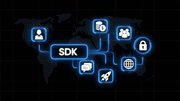News
Diebold to expand e-voting commitment despite controversy
May 20, 2004
Diebold will continue making voting machines despite flack from investors and states, according to an article on Bloomberg.com.
Under CEO Walden O'Dell, ATM manufacturer Diebold has become the largest maker of touch-screen voting machines, and put itself in the middle of the maelstrom of controversy begun with the difficulties surrounding the 2000 presidential election. During that election, disputes about Florida's punch-card ballots led to an electoral stalemate that lasted 36 days and was ended by U.S. Supreme Court intervention.
Diebold entered the voting machine business because, O'Dell said, company leaders wanted to fix the errors in America's voting process they believed responsible for the Florida debacle.
"The country had a crisis and the world changed forever," he said.
But Diebold has run into its own share of problems on the road to the polls. In April, use of the newest Diebold voting machines was banned in California after machines in three counties caused delays at the polls and some voters to use wrong ballots.
"We walked into a minefield and maybe made some mistakes along the way," said O'Dell. "Our heart and soul and energy are all in the right place here."
Investors may argue whether Diebold's energy is spent in the right place. Of Diebold's three divisions, the voting machine unit was the least prosperous. In January, the company reported that voting-machine sales had fallen 9.7 percent, and profit dropped 32 percent. Shares have fallen 12 percent this year.
Don Taylor, who manages $1.8 billion in the Franklin Rising Dividends Fund, says Diebold's fall in shares isn't because of the company's financial performance. Diebold has had average annual revenue growth of 31 percent over the past five years. Investors are selling Diebold shares because the company makes the touch-screen voting machines.
"The voting business is obscuring the strong underlying fundamentals of the company," said David Haley, an equity analyst at T. Rowe Price Associates, the investment arm of Diebold's third-biggest shareholder, T. Rowe Price Group Inc.
Regardless of investor or state concerns about Diebold's voting machines, O'Dell doesn't plan to sell the business. He said it is his public duty to press ahead with voting machines that will probably yield Diebold no more than $200 million a year.
O'Dell said he plans to improve the unit he created in 2002 with the $41.3 million purchase of McKinney, Texas-based Global Election Systems Inc. in February 2002. Diebold aimed to capture some of the $3.9 billion Congress approved that year to help states improve voting systems.
"Electronic voting is coming and will be here to stay," said Liz Miller, who helps manage more than $700 million, including 105,000 Diebold shares, at Trevor Stewart Burton & Jacobsen in New York. "The advantages are just so strong for both voters with disabilities and for eliminating human counting errors and simplifying voting choices."
Included In This Story
Diebold Nixdorf
As a global technology leader and innovative services provider, Diebold Nixdorf delivers the solutions that enable financial institutions to improve efficiencies, protect assets and better serve consumers.
 ChatGPT
ChatGPT Grok
Grok Perplexity
Perplexity Claude
Claude












